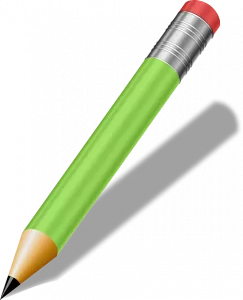
Hey, here we go for the French conjugation!
If you are here is that you want to learn and improve your French, well done!
Test your knowledge in French conjugation!

Let a comment at the end of the article to tell me what you think about it:
- Do you like it?
- Does it help you?
- Do you have any questions that you want me to anwser?
- Do you want to learn more about the French conjugation?

French conjugation – Quiz 1
Quiz
A - What is the correct answer?
- J’apele
- J’appelle
- J’apelle
- J’appele
B - What is the correct answer?
- Va’t-en
- Vas-t’en
- Va-t’en
- Va-t-en
C - What is the correct answer?
- Il résout
- Il résolut
- Il résolvera
- Il résoudra
D - Which verb is not conjugated in the future tense?
- Nous dirons
- Nous courons
- Nous vendrons
- Nous pourrons
E - Which verb is not a 2nd group verb?
- Choisir
- Grandir
- Partir
- Finir
F - What is the correct answer?
- J’envoierai
- J’enverrai
- J’enverai
- J’envoyerai
G - What is the correct answer?
Cet homme ... la cour.
- Nettoi
- Nettoit
- Nettoie
- Nettoye
H - What is the correct tense for je courrais?
- Past tense (imparfait)
- Future
- Conditional
- Sunjunctive
I - At the present tense, which verb has the ending letter t at the 3rd person of the singular?
- Parler
- Vendre
- Prendre
- Peindre
J - What is the verb which is not conjugated in the past tense (imparfait)?
- Il parassait
- Il prenait
- Il mourrait
- Il devait

Answers
A
2
Ex : J’appelle ma soeur
I am calling my sister
The verbs appeler and jeter double the letter l or the letter t before the silent e.
B
3
Ex : Va-t’en ! Je ne veux plus te voir !
Go away! I don't want to see you anymore!
In the affirmative imperative, the structure is: verb + pronoun.
C
3
Ex : Il résoudra le problème rapidement.
He will solve the problem quickly.
D
2
Courons is conjugated in the present tense.
Courrons is conjugated in the futur tense.
Ex : Nous courons vers la sortie.
We are running toward the exit.
Ex : Nous courrons ensemble demain, pour le plaisir.
We will run together tomorrow, for fun.
E
3
Ex : Partir au Sahara
Going to the Sahara
Partir is a 3rd group verb.
You can know if a verb is a 2nd group verbs with this: if the present participle is -issant so it’s a 2nd group verbs.
Here are some examples of 2nd group verbs:
Choisir → choisissant
Grandir → grandissant
Finir → finissant
F
2
Ex : J’enverrai une lettre à mes parents.
I will send a letter to my parents.
When we conjugate a verb in -er in the future tense, we keep the infinitive and add the endings: ai, as, a, ons, ez, ont.
The verb envoyer is an irregular verb, so we write it with a double r.
J’enverrai
Tu enverras
Il/elle enverra
Nous enverrons
Vous enverrez
Ils/elles enverront
G
3
Ex : Cet homme nettoie la cour.
This man is cleaning the yard.
For the verbs that ends with –oyer, the letter y becomes i before a silent e.
Je nettoie
Tu nettoies
Il nettoie
Nous nettoyons
Vous nettoyez
Ils nettoient
H
3
Ex : Je courrais si le chien m’avait menacé.
I would run if the dog threatened me.
In the future and conditional tenses, the verbs that take a double r are: courir, mourir, pouvoir, voir et envoyer.
I
4
Ex : Il peint dans son atelier.
He is painting in his studio.
The verb with the ending -dre: they keep the ending letter d at the 3rd person of the singular.
Ex : Vendre (to sell) → il vend
Prendre (to take) → il prend
The verb with the ending -indre: they have the ending letter t at the 3rd person of the singular.
Ex : Craindre (to fear) → il craint
Rejoindre (to join) → il rejoint
J
3
Il mourrait = conditional present tense.
The verb mourir (to die) conjugated in the past tense (imparfait):
Je mourais
Tu mourais
Il/elle mourait
Nous mourions
Vous mouriez
Ils mouraient
Do you have a better understanding of the French conjugation, now?
Thomas, your French teacher 😀
+++++++++++++++++++++++++++++++++++++++++++++++++++++
ÊTRE and AVOIR in the past tense + Exercises
+++++++++++++++++++++++++++++++++++++++++++++++++++++

Thomas Ricomard specializes in teaching French as a foreign language. He has been providing private lessons since 2015, both in-person and online (via Skype). He taught at the Popular University of the Canton of Geneva (Switzerland) from 2015 to 2018, instructing several groups of 20 students from around the world (United States, Canada, United Kingdom, Spain, Brazil, South Africa, Zimbabwe, Mexico, etc.), ranging from beginner to intermediate levels (A1 to B2). With a Master’s degree in clinical and cognitive psychology from the University of Geneva, his knowledge of psychology allows him to tailor his teaching methods for optimal learning, taking into account factors such as visual memory versus auditory memory. He expresses his passion for the French language through writing texts, including poetry and songs, which he presents publicly at numerous music and slam events.
